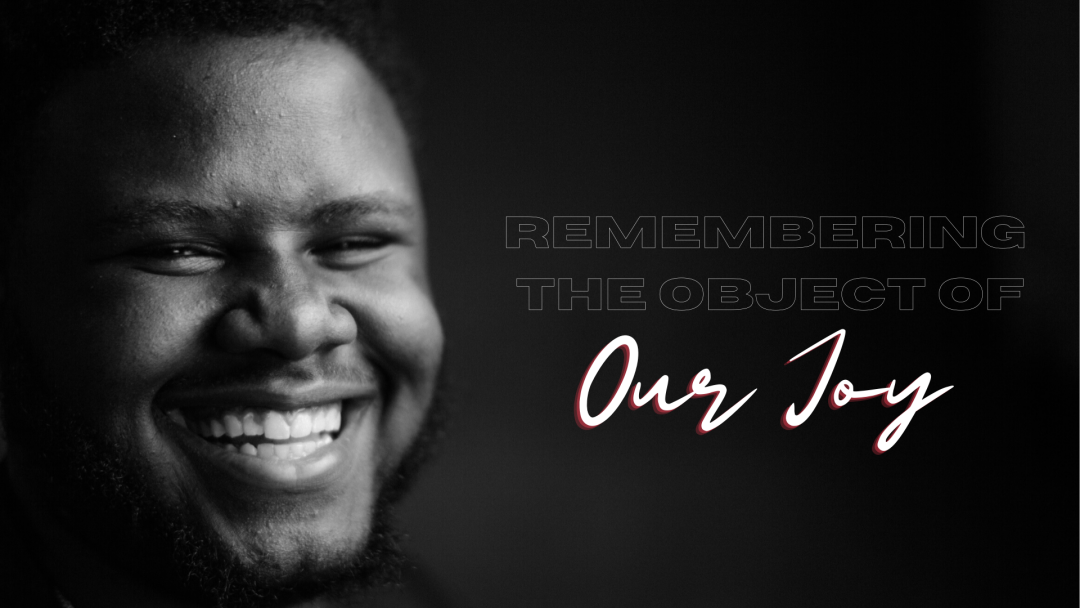
As Christians, we often become entangled in arguments and split hairs over trivial distinctions. One example of this is how we differentiate between joy and happiness. We define happiness as what we feel when we buy a new car, while we define joy as lasting contentment in Jesus. By contrast, Fritz Chery of BibleReasons.com notes that theologians throughout the centuries used the terms happiness and joy interchangeably. He says the distinction that modern Christians draw “is not so much in the substance of happiness vs. the substance of joy, but in the object of happiness vs. the object of joy.”
Rethinking Happiness
When we occasionally sing old hymns at Bay Life, I tend to be thrown by the language differences between now and 100-plus years ago. Yes, deliv’rence looks strange, and shortening trumpet to trump is a little distracting, but what annoyed me most is how happy was often used to describe the joy of our salvation. The opening verse of the hymn “At the Cross states, “At the cross, at the cross were I first saw the light / and the burden of my heart rolled away / it was there by faith I received my sight / and now I am happy all the day.”
I cringed at the last line because, if happiness is superficial, I figured the writer of that hymn must have had a shallow faith to use happy instead of joyful. If, however, we take a closer look at what this hymn says, it’s obvious why its writer, Isaac Watts, was “happy all the day.” He roots his state-of-being in salvation “by grace through faith” (Ephesians 2:8), rather than in something impermanent. It was by God’s grace that Jesus paid for our sins on the cross, and also by grace that we “first saw the light.” Watts found happiness in his Savior—not in fleeting and empty comforts.
Rethinking Joy
In the article, “How Do You Define Joy?” Pastor John Piper describes Christian joy as “a good feeling in the soul, produced by the Holy Spirit.” (DesiringGod.org). At first glance, this description of joy as a feeling might sound completely backward from our common understanding of the word. After all, don’t we feel good when we’re happy? And isn’t joy deeper than our fleeting emotions? Yet Piper distinguishes Christian joy from normal emotions by emphasizing that it is a fruit of the Spirit (Galatians 5:22-23).
Piper explains that, since joy is something we feel, we cannot make ourselves be joyful. Rather, the Holy Spirit gives this joy to us, just as He gives us “peace that surpasses all understanding” (Philippians 4:7). He says, however, that the Spirit does not give joy “magically, without [our minds] being engaged.” Instead, this joy comes as He causes us “to see the glory and beauty of Jesus Christ.” Christian joy, therefore, is our grateful response for who Jesus is and what He has done on our behalf. Because of this, we can “rejoice in the Lord always” (Phil. 4:4) and can be content, regardless of our circumstances (verse 12).
Growing in Christian Happiness
So, how do we cultivate this fruit of the Spirit? In Colossians, Paul tells the church, “Let the word of Christ dwell in you richly…singing psalms and hymns and spiritual songs, with thankfulness in your hearts to God” (3:16). Thankfulness is the soil where our joy grows. If we remember that Christ sacrificed Himself “while we were still sinners” (Rom. 5:8), we realize how hollow our temporary happiness is. We are reminded of this gratitude through God’s Word and by worshipping Him in song. And this passage also brings us full-circle to Isaak Watts, who, through his hymns, expressed the thankfulness in his heart as he rejoiced in his salvation.
We find ultimate joy and happiness in Christ because, unlike other things in life, He “is the same yesterday and today and forever” (Hebrews 13:8). Though people fail us, economies crash and pandemics rage, Jesus is “a sure and steadfast anchor of the soul” (6:19) who will hold onto us until He comes again.

